Announcing an environmental plan to target plastic waste in the UK is long overdue. In London alone, we produce enough waste to fill an Olympic swimming pool EVERY HOUR, according to Junkk.com. Today, Theresa May announced new plans to eradicate plastic waste by 2042.
I know what you’re thinking, 2042? Who plucked that year out of thin air? Well, supposedly it’s all part of a grand 25-year plan to ensure that the current generation is the first to leave the world in a better state than before. Which current generation? Millennials? Centennials? Who the fuck knows. We’re guessing she means the youngest generation, since her generation has already left us a world where the [majority of our species are vulnerable to extinction](https://www.worldwildlife.org/species/directoryirectory).
The 25-year-plan includes extended the 5p plastic bag charge to all English retailers, introduce plastic-free supermarket aisles (M&S must be shitting themselves) and help developing nations with their plastic waste. 25 years is a long time, undoubtedly. In some ways, it’s a positive and realistic length of time, and frankly a breath of fresh air compared to the wave of short term plans most governments offer to make their time in office look successful. Although it does only subject future governments to It’s what we’re using this long chunk of time for that matters, and that’s where the main concerns are.
To make a 25-year pledge, the proposed plans need to be ambitious to be legitimate. The very thing wrong with these plans is that they lack ambition and notably, clarity. Greenpeace has spoken out against the announcement, stating that the omission of a deposit return scheme for plastic bottles was a ‘missed opportunity’. Deposit return schemes essentially mean that you buy only the contents of a bottle and technically borrow the bottle itself. Paying a small deposit on top of the drink, which you receive back on returning the bottle, you are reducing your plastic waste but still enjoying your favourite product.
While Greenpeace are concerned with what was omitted from the proposal, there is also confusion around the effectiveness of the plans included in it. There is one section of the plan that suggests holding the government to account on its green record, but contains no information on how that will be done. There are even sections that remained blank in the copies shown to environmental groups, specifically on how to make planning and development more environmentally friendly.
Given the nature of the proposal and the seemingly surprising announcement itself given the previous record of the Conservative party on environmental matters, many are sceptical about the declaration. Sue Hayman, the shadow environment secretary said the overall plan was ‘a cynical attempt at rebranding the Tories’ image and appears to contain only weak proposals’.
Scepticism around the plan is evident from the reactions of many environmental specialists. Craig Bennet, Chief Executive of Friends of the Earth told The Guardian that given the governments record on fracking and air quality he wasn’t convinced by the ambitions. Caroline Lucas, co-leader of the Green Party and MP for Brighton Pavilion tweeted:
‘That speech by @theresa_may was entirely underwhelming. No legislative backing for a set of vague, very long-term ambitions. Nothing new at all on climate.’
So, with a seemingly weak pledge by the government, it might just be up to us to help save the future of our oceans and, you know, planet.
What can you do to reduce your plastic waste? Here are 5 things you can do to help TODAY…
1. Buy A Re-Usable Coffee Cup
Not only do you get to avoid awkwardly sneaking other peoples mugs out of the office kitchen, you also get to save money whenever you treat yourself to an actual coffee shop coffee (Pret, Costa, Caffe Nero and Starbucks all offer discounts for bringing your own cup).
2. Give Up Plastic Shopping Bags
If you're not already doing this... WHY?? Who needs to spend an extra 20p on plastic bags every time they do a weekly shop. Okay, it's only 20p, but just think of all the penguins your saving by remembering your re-usable bags on the way out the door (maybe put them ON the door, then you can never forget).
3. Refuse Plastic Straws
First thing that comes to mind, ummmm lipstick smudges?? Yes, it's annoying not to use a straw and have to re-apply your lipstick after every sip. Two solutions: 1. Buy a matte liquid lipstick 2. Get so drunk you don't care.
4. Buy A Re-Usable Water Bottle
By avoiding plastic bottles alone, the average person would save 185lbs. of plastic per year entering the oceans. 185LBS!! Get yourself a cute personalised water bottle and save the fishies. It also helps you know how much water your drinking and reminds you to refill. Saving your complexion, coin AND the clownfish (nemo was a clownfish, save nemo).
5. Shop Fruit and Veg At Your Local Grocer
Not only are you supporting your local businesses but also THE EARTH. Either go buy yourself some loose veg down your local green grocer or take along a re-usable bag and fill your boots.
Check out: House plants you need that help clean the air...
Debrief - Plants That Clean The Air
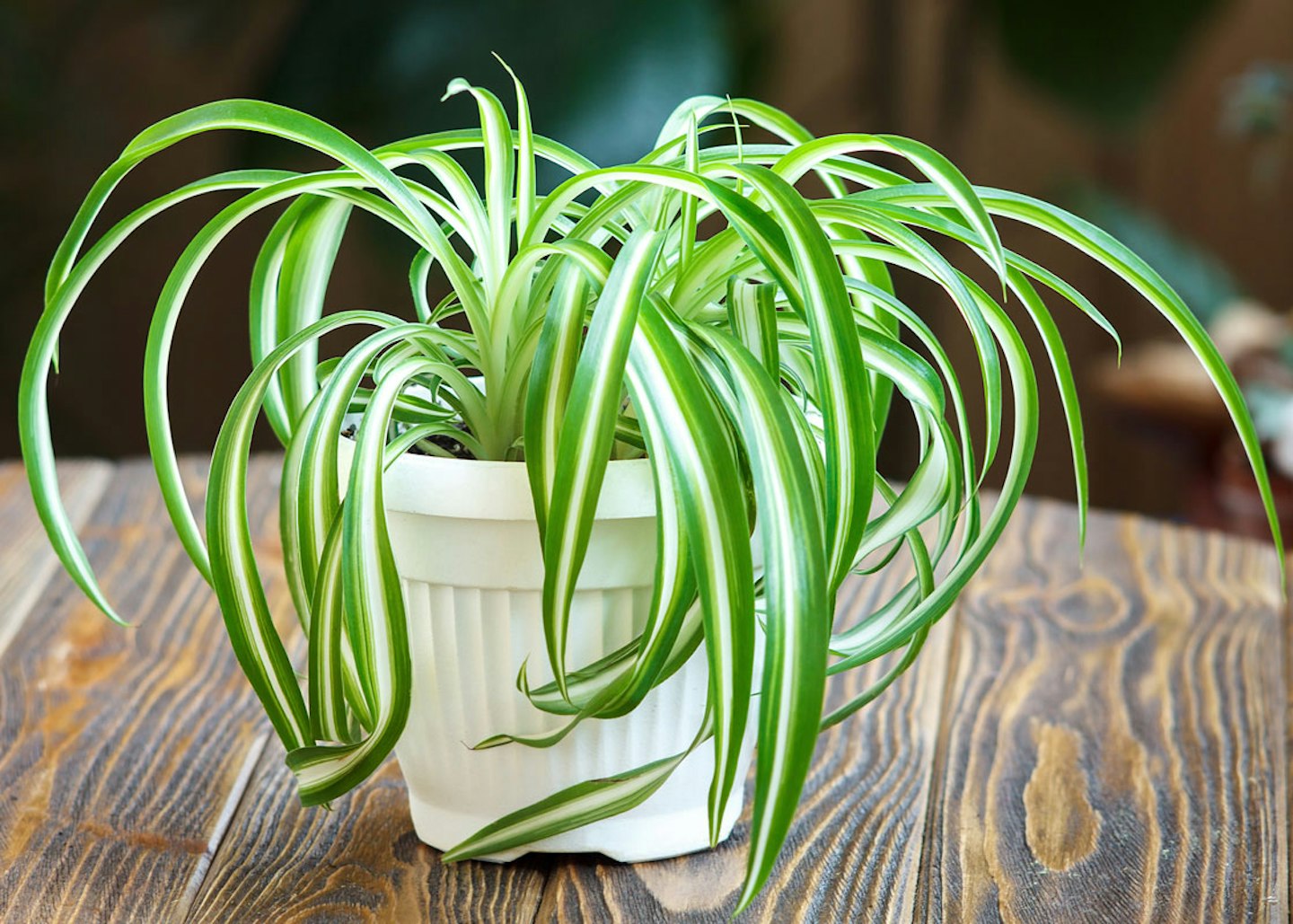 1 of 5
1 of 51. Snake Plants
These Instagram-friendly guys give out oxygen over night which means they'd probably make a great addition to your bedroom plant collection. We've got the full low down on how to look after them here on The Debrief too.
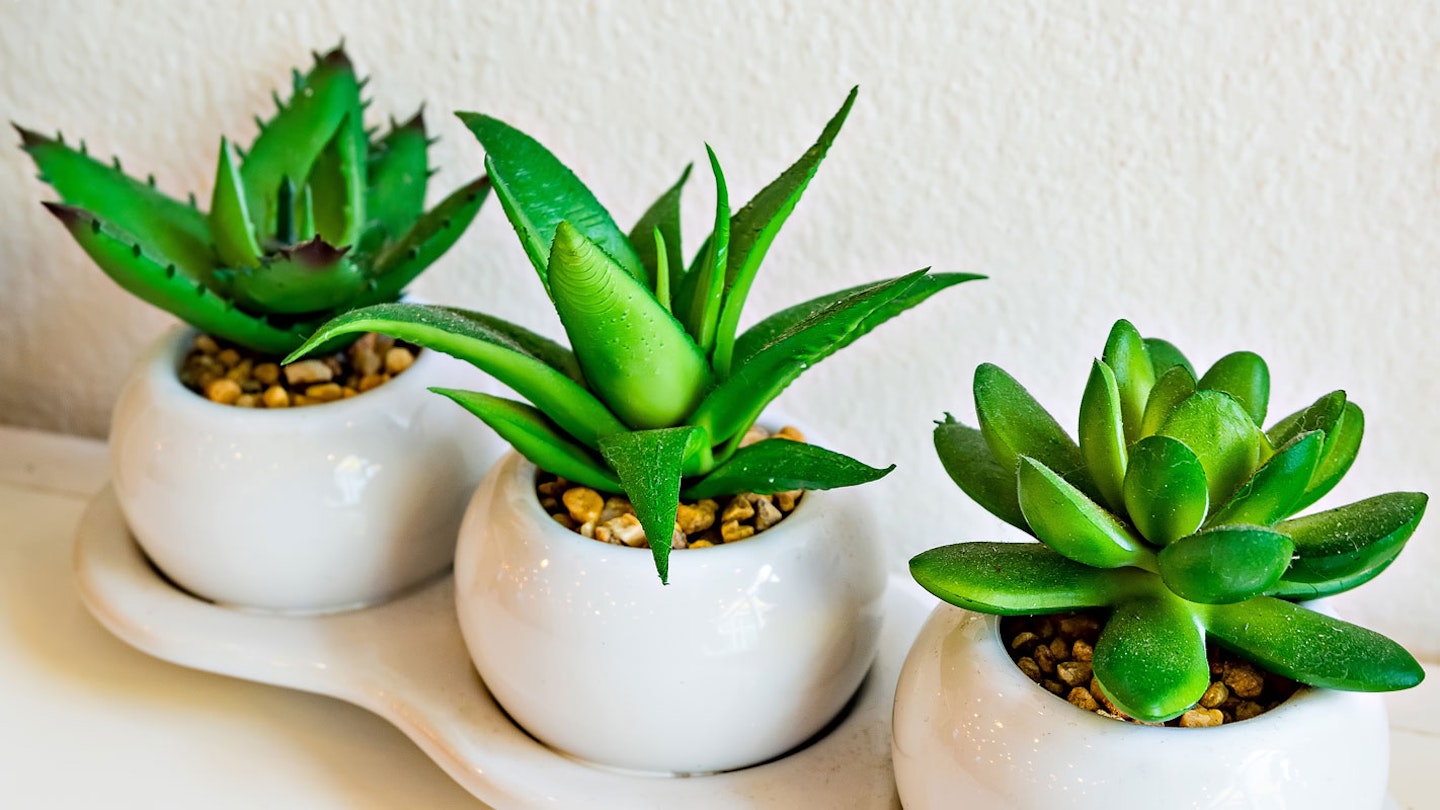 2 of 5
2 of 52. Aloe Vera Plants
All hail the loyal succulent. Apparently they're absolute gems when it comes to fighting off a chemical called Benzene. They're also easy to grow and hard to kill which is obviously a huge bonus if you're not very green thumbed.
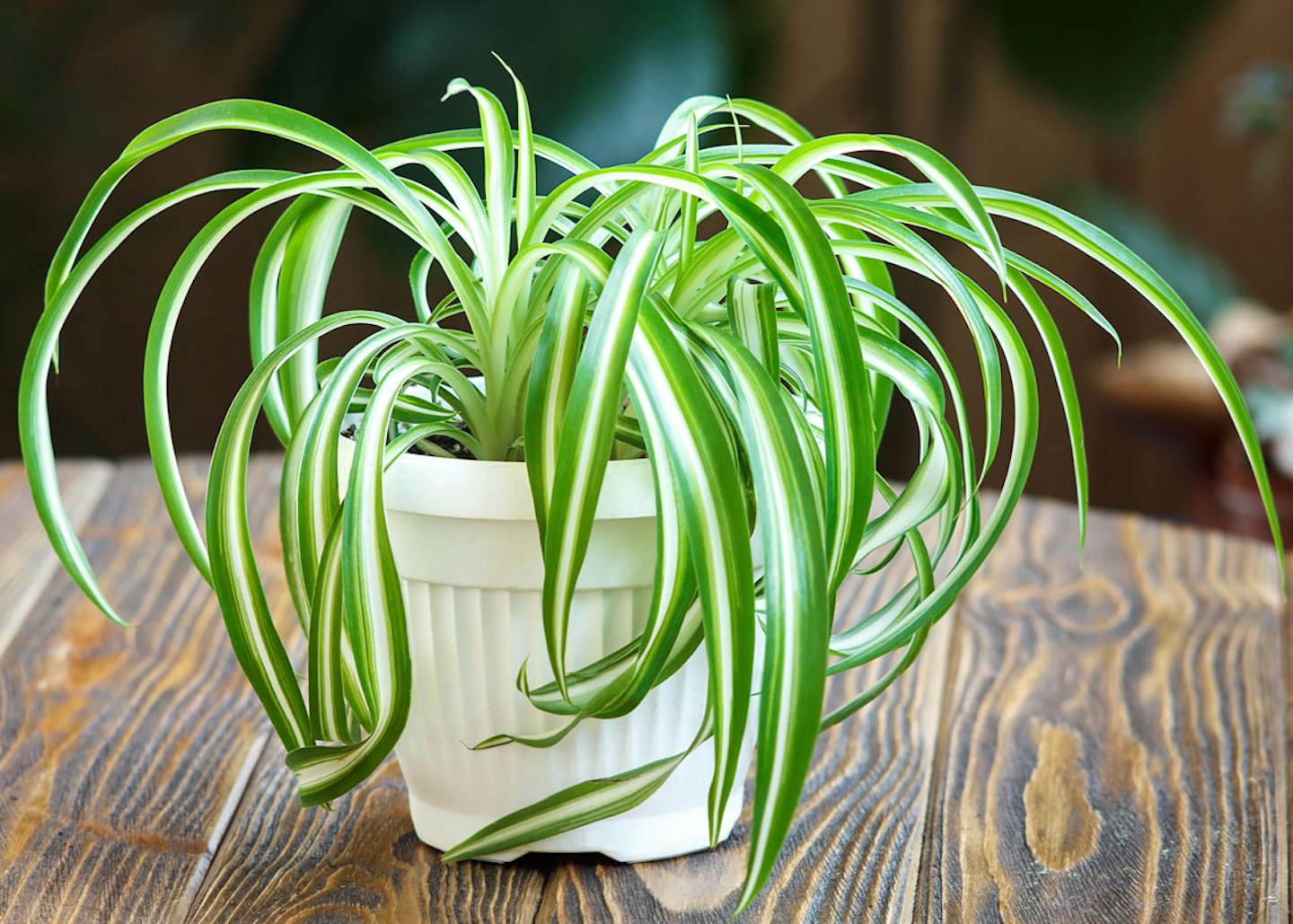 3 of 5
3 of 53. Spider Plants
Word on the street is that spider plants are one of the easiest to grow. So if you're after something that'll take a real presence and transform the look of your otherwise baron flat, get to know these ones. They're good at getting rid of formaldehyde (a compound that's used in building materials and to make lots of household products).
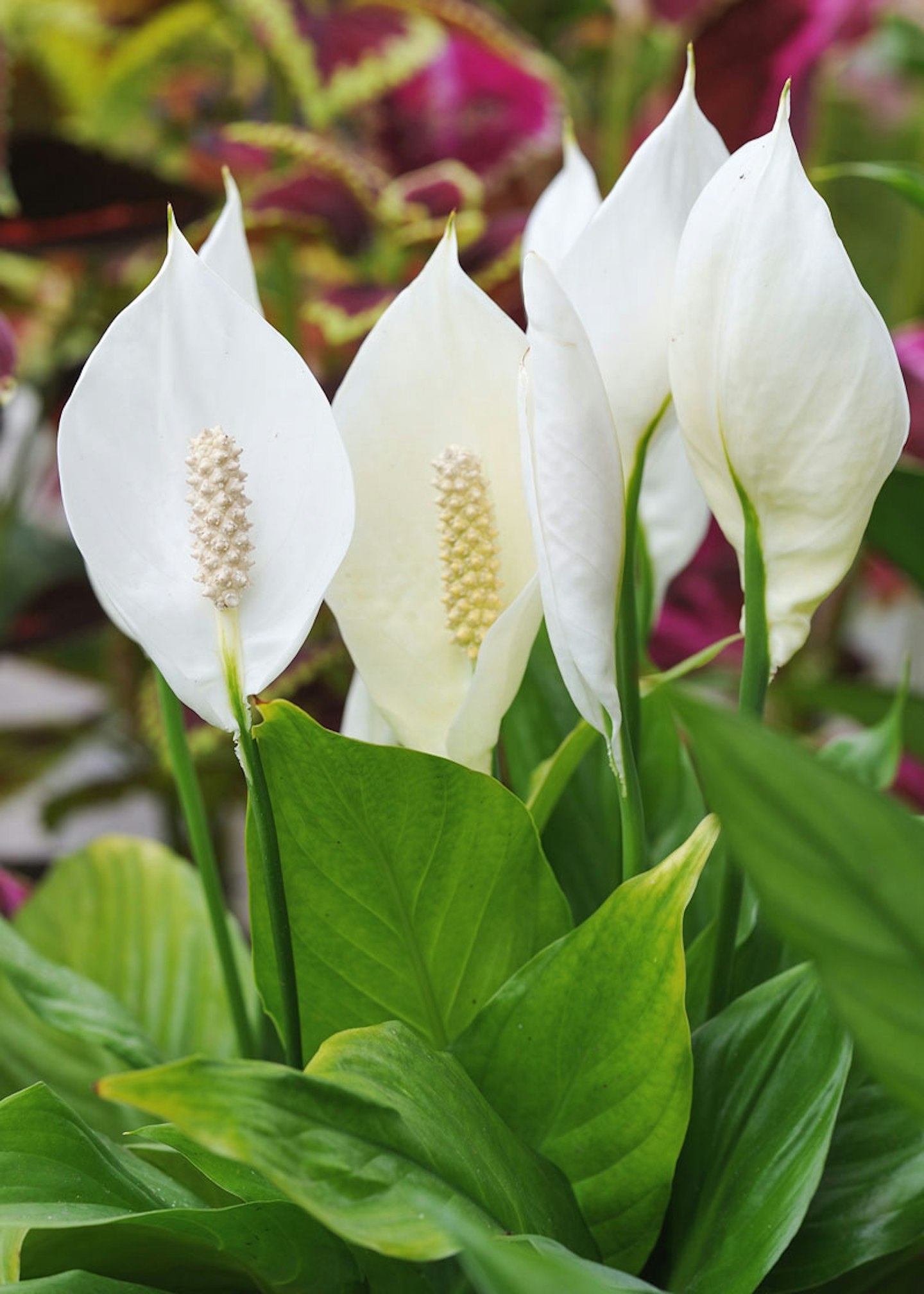 4 of 5
4 of 54. Peace Lilies
Look no further if you'd prefer to introduce a flowering plant to your humble abode. The peace lily is a great option if you're worried about indoor air quality. Also they apparently help to reduce levels of mould and mildew if that's something you're worried about - they absorbe the little mould spores through their leaves and then it gets circulated down to the roots where they are used as food.
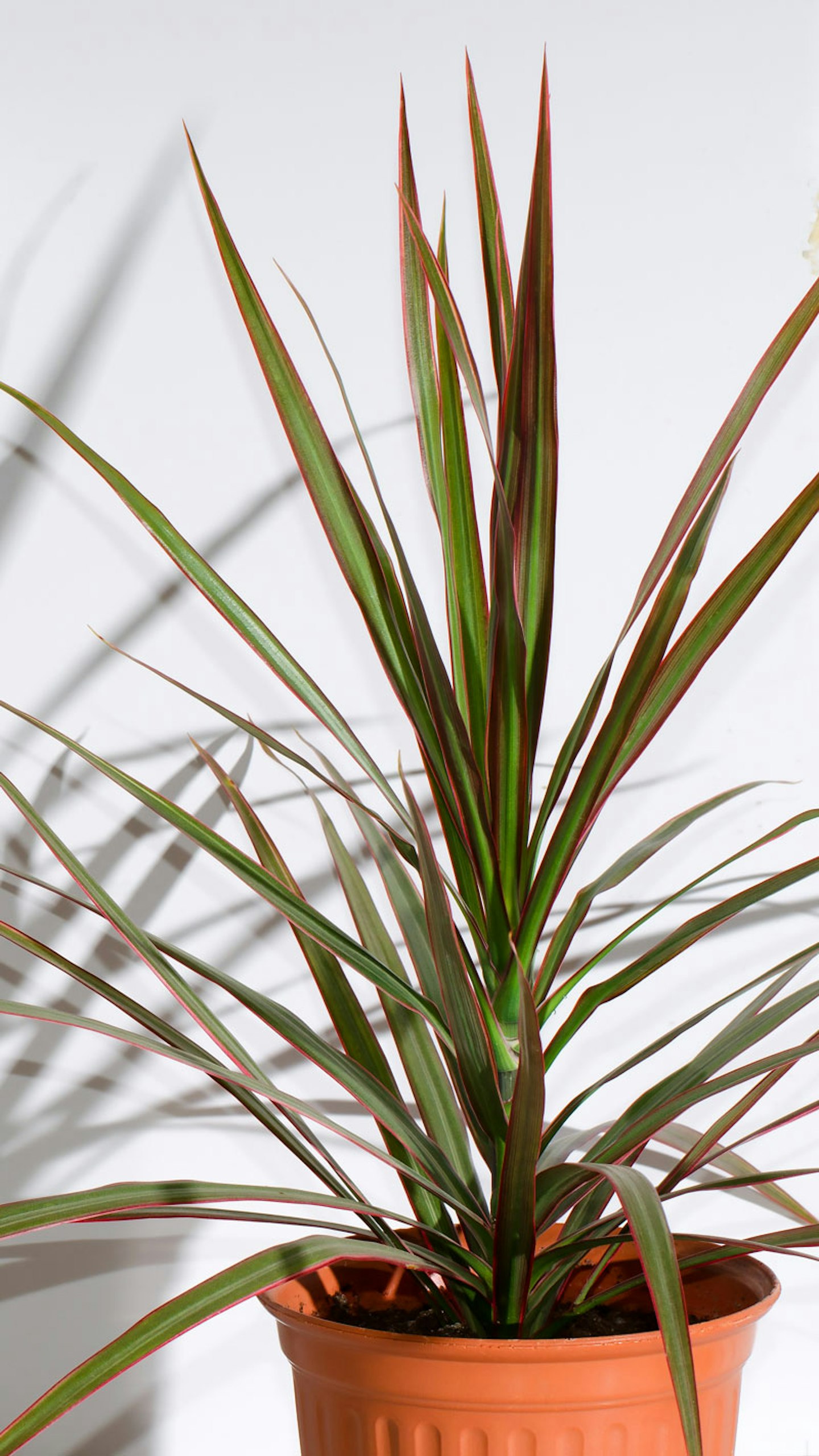 5 of 5
5 of 55. Red Edged Dracaena
Big and effective is the name of the game with this bad boy. They grow pretty slowly but can eventually reach 8ft and are super effective when it comes to removing a variety of pollutants. Pop it anywhere (as long as you've got fairly high ceilings).
Liked this? You might also be interested in...
Our Obsession With All Things Glitter Is Harming The Environment
This article originally appeared on The Debrief.
